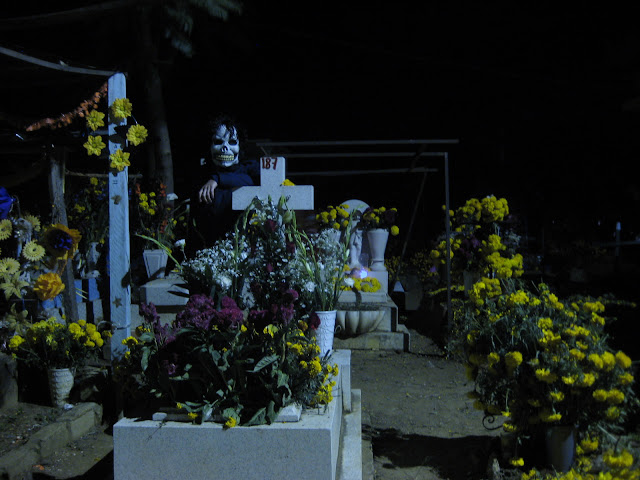The bell tolls for thee, not because you will die, but because you are alive.
It must be commonly understood that our rituals of death are no longer done for the dead. Maybe they never were. Ancient cultures, on the surface, performed rituals on their dead whose purpose was to assist them in their ongoing journey into the afterlife. These were rituals of preparation, providing the deceased with tools, weapons and bribes to see them through whatever would follow in their new quest - the quest for eternal peace, a peace which was not automatic, but had to earned in death as success had had to be earned in life. Once Christians introduced the fixed polarities of heaven and hell, the afterlife became a question not of journey but of destination. No longer were careful rituals of preparation required, since once the soul had crossed over to the other side there was no further doctrinally-verified journey to the final resting places of the dead. The dead Christian was faced with an instant judgment instead of an ongoing journey: his inverted meritocracy had sealed his destination already. He will arrive at the pearly gates to find his name already inscribed in one book or the other. There was now no space for the hero to battle his way into Elysium. Accordingly, the elaborate rituals of the pantheists and pagans were no longer needed and elaborate and morbid rituals of taboo performed at the point of death started to disappear.
Now, in the beginning of the psychological age, it is legitimate to say that all rituals for the dead are done for the benefit of the living. These rituals do not prepare the dead for their own afterlife, but prepare the survivors for their own life after the life of the deceased. Rituals form a symbolic closure to existence, and prepare the living for the journey of bereavement. Everything we do for the dead is not for them, but for us. This by no means belittles it: in fact I think it gives our actions in the face of this unknowable state a particular propitiatory poignancy. But it does mean that we can see, in our treatment of the dead, a reflection of ourselves. What we do for them is in fact what we do for ourselves, and is therefore what we want or need. Through actions for the dead we expose our own values and define our self-identity. In this light, what do we find out about ourselves in the remaining rituals surrounding death? What do we respect about ourselves in the way we respect our dead (even that we respect our dead)? And finally, what is our relationship to the necropolis and the cemetery, something we claim for the dead, but we make for the living?
The bell tolls for thee, not because you will die, but because you are still alive.




No comments:
Post a Comment